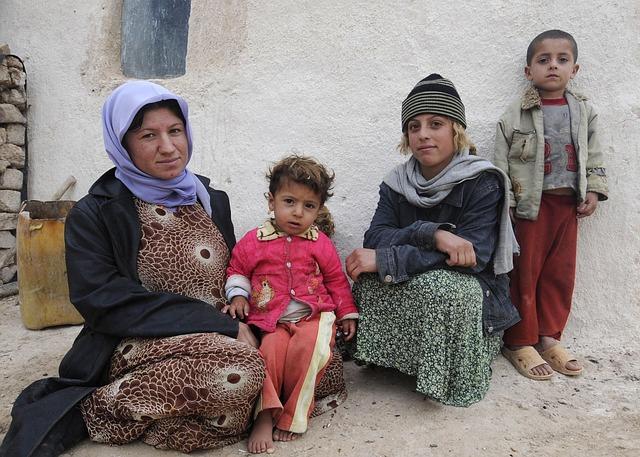In a significant development in Iraq’s political landscape, Prime Minister Masrour Barzani has asserted that the participation of the Kurdistan Democratic Party (KDP) in the upcoming Iraqi cabinet hinges on the full implementation of the nation’s constitution. Speaking during a recent press briefing, Barzani emphasized the importance of constitutional adherence as a foundational element for fostering stability and cooperation among Iraq’s diverse political factions. His remarks come amid ongoing discussions regarding the formation of a new government, where the KDP’s role remains pivotal. As tensions and negotiations escalate, the PM’s stance signals a renewed focus on legal frameworks that govern Iraq’s political operations and the potential ramifications for governance in the region.
KDP’s Role in Iraq’s Political Future Linked to Constitutional Adherence
The recent statements made by Prime Minister Barzani have stirred significant conversations regarding the future of Iraq’s political landscape, particularly concerning the role of the Kurdistan Democratic Party (KDP). Barzani emphasized that the KDP’s participation in the next Iraqi cabinet will hinge critically on adherence to constitutional commitments by the federal government. He underscored the necessity for all parties to respect the established constitutional framework, which is pivotal for maintaining the integrity and coherence of the nation’s governance. This stance highlights the KDP’s insistence on not merely being part of a government but engaging in a process that is constitutionally grounded and fair.
The KDP’s conditions for participation signal a broader push for accountability and adherence to democratic norms within Iraqi politics. Key points mentioned by Barzani include:
- Clear constitutional frameworks: Compliance with established laws is essential.
- Equitable representation: Ensuring fair representation of all Iraqi regions in the cabinet decisions.
- Commitment to reforms: A push for governance that prioritizes reforms benefiting every Iraqi citizen.
This call for constitutional adherence from the KDP illustrates the party’s strategic approach to political participation while aiming to enhance the overall democratic process in Iraq. With several challenges on the horizon, including economic recovery and internal stability, the commitment to constitutional protocols could serve as a stabilizing force for the Iraqi government moving forward.
Barzani Emphasizes the Necessity of Legal Framework for Cabinet Formation
In a recent statement, Prime Minister Barzani voiced his strong belief in the need for a robust legal framework guiding the formation of the cabinet in Iraq. He highlighted that any participation from the Kurdistan Democratic Party (KDP) in the upcoming government is deeply intertwined with the adherence to constitutional mandates. Barzani asserted:
- Legal Certainty: Establishing a solid legal foundation will ensure that all parties operate within a defined structure.
- Constitutional Compliance: He emphasized that any new cabinet must be formed in strict accordance with the Iraqi Constitution to guarantee legitimacy.
- Political Stability: A transparent and lawful process will foster greater political stability and trust among the various factions.
According to Barzani, without this legal framework, efforts to create a cohesive government may falter, leading to potential discord among the political entities involved. Furthermore, he reiterated the importance of dialogue among all stakeholders to address grievances and build a cooperative environment. Key topics under discussion include:
| Topics for Discussion | Significance |
|---|---|
| Constitutional Amendments | Ensure equitable representation |
| Resource Allocation | Fair distribution for all regions |
| Federal Authority | Strengthen central governance |
Strategic Recommendations for Achieving Constitutional Compliance in Iraq
To facilitate effective governance and ensure compliance with the constitution in Iraq, several strategic actions are essential. The Kurdistan Democratic Party (KDP) must prioritize a collaborative approach that includes all political factions to foster a unified stance on constitutional matters. This can be achieved through initiatives such as:
- Establishing a Constitutional Reform Committee: This committee would be responsible for addressing any ambiguities in the constitution and proposing amendments that reflect the realities on the ground.
- Regular Consultations: Engaging with various stakeholders, including civil society and legal experts, to discuss constitutional issues and develop comprehensive recommendations.
- Strengthening Enforcement Mechanisms: Promoting the establishment of independent bodies to oversee constitutional adherence across all government levels.
Moreover, fostering a culture of transparency and accountability is critical in reinforcing constitutional compliance. To this end, the Iraqi government could implement the following measures:
| Measure | Purpose |
|---|---|
| Public Awareness Campaigns | Educate citizens on their constitutional rights and the importance of adherence. |
| Monitoring and Reporting Systems | Establish systems for citizens to report violations to appropriate authorities. |
| Regular Audits | Conduct audits on government agencies to ensure they are complying with the constitution. |
Wrapping Up
In conclusion, Prime Minister Barzani’s statement underscores the critical link between the Kurdistan Democratic Party’s participation in the upcoming Iraqi cabinet and the effective implementation of the Iraqi constitution. As the political landscape continues to evolve, the emphasis on constitutional adherence not only reflects the KDP’s commitment to governance but also highlights the broader challenges facing Iraqi unity and stability. Stakeholders across the region will be closely monitoring the unfolding dynamics, as the potential for a cohesive national government hinges on these constitutional principles. The coming weeks will be pivotal in determining the future of both the Iraqi cabinet and the long-standing aspirations for a more unified governance structure.
